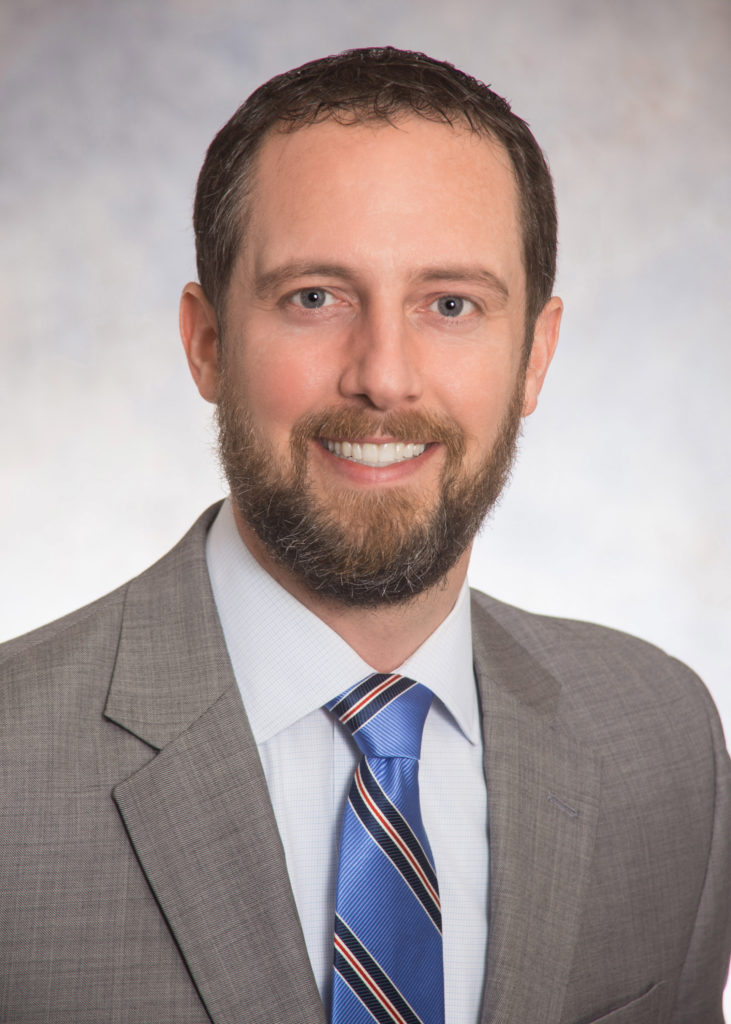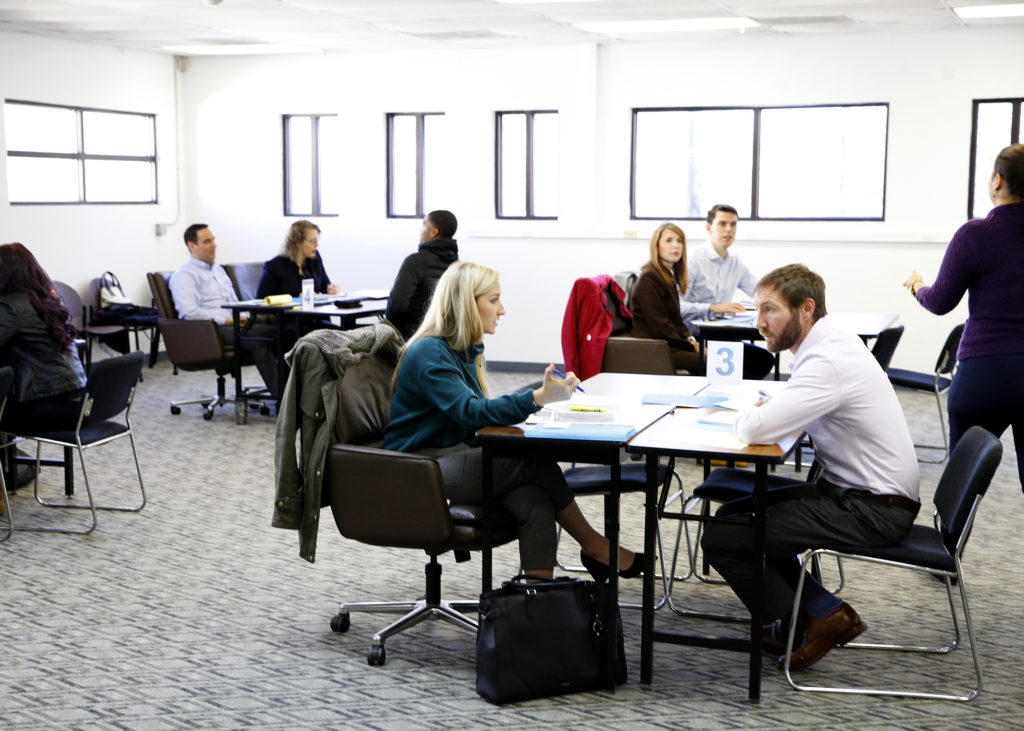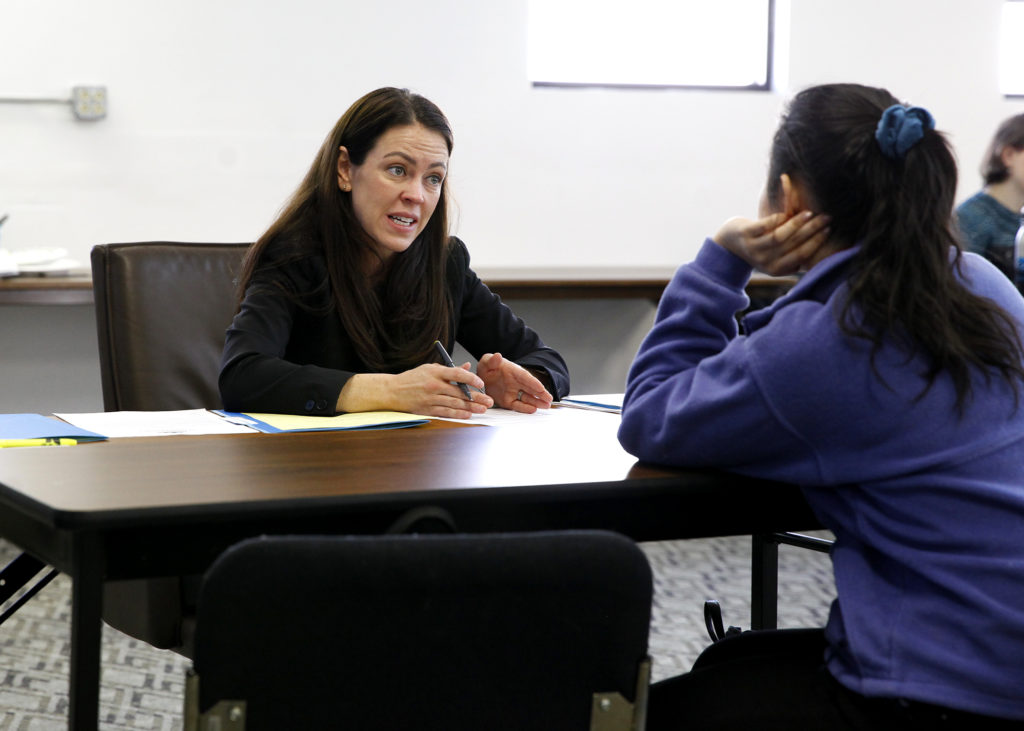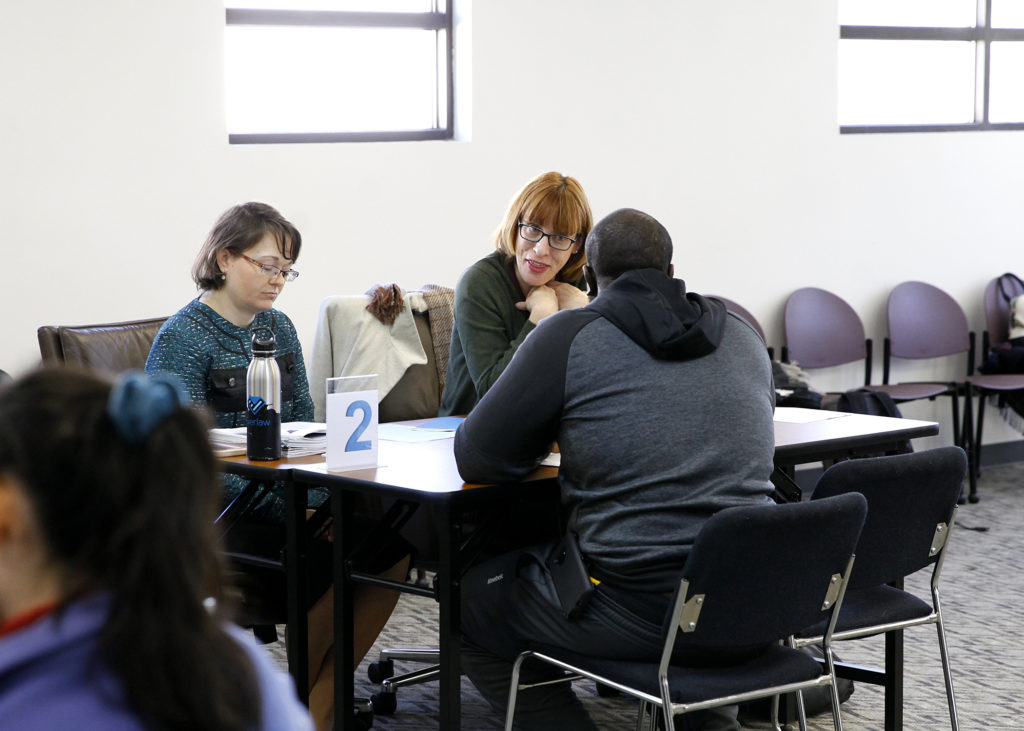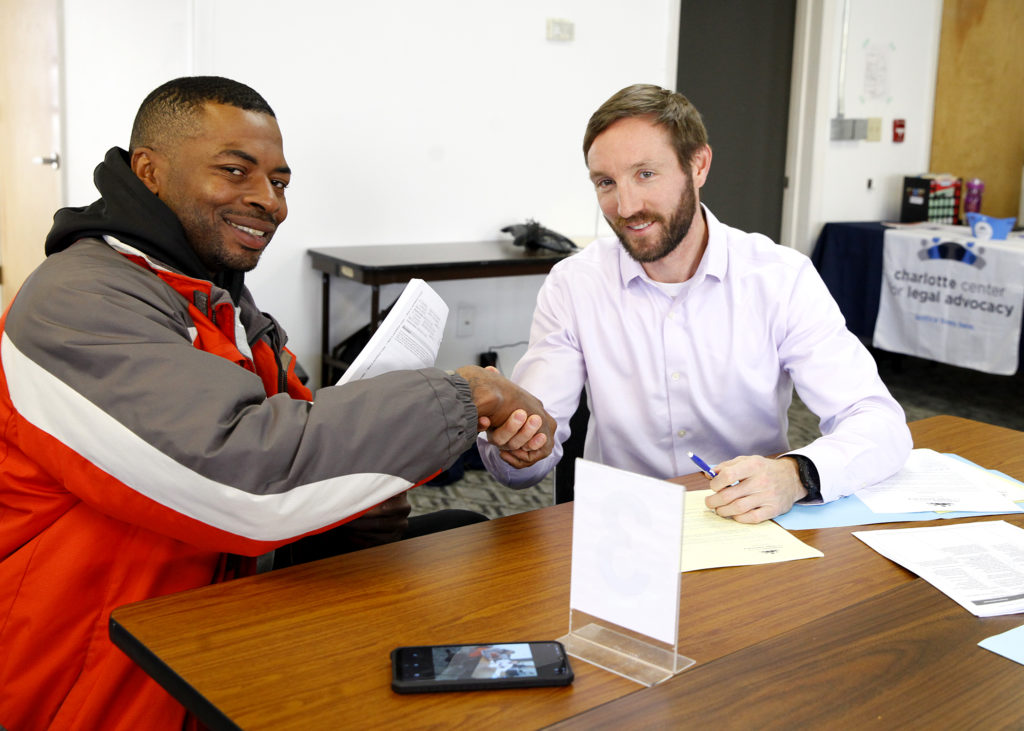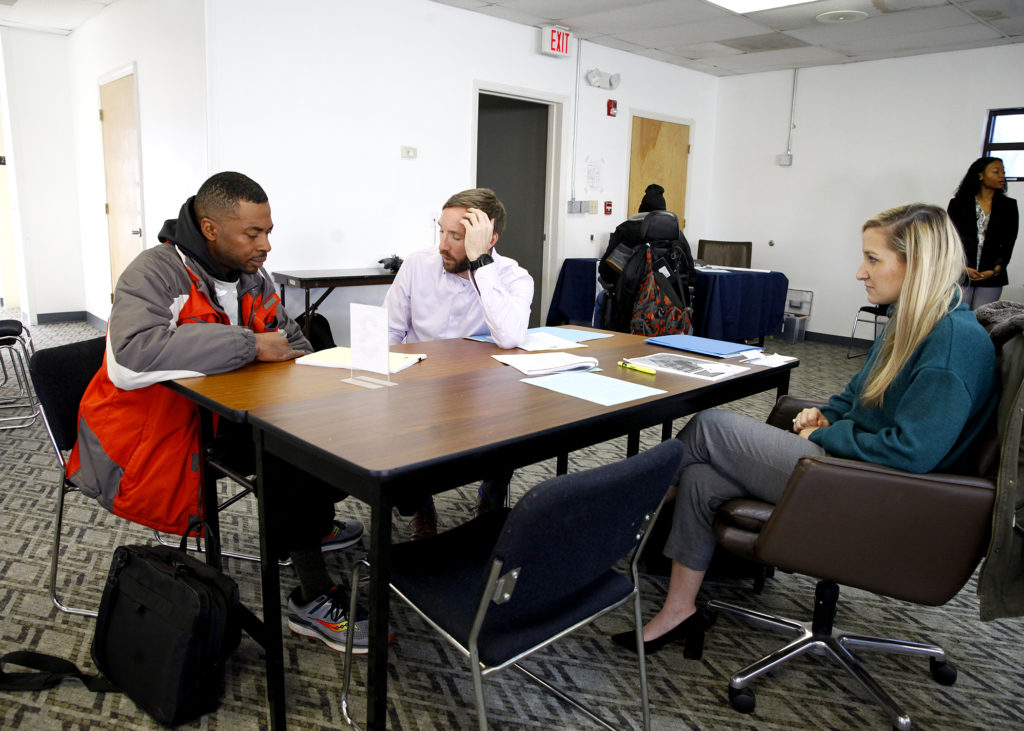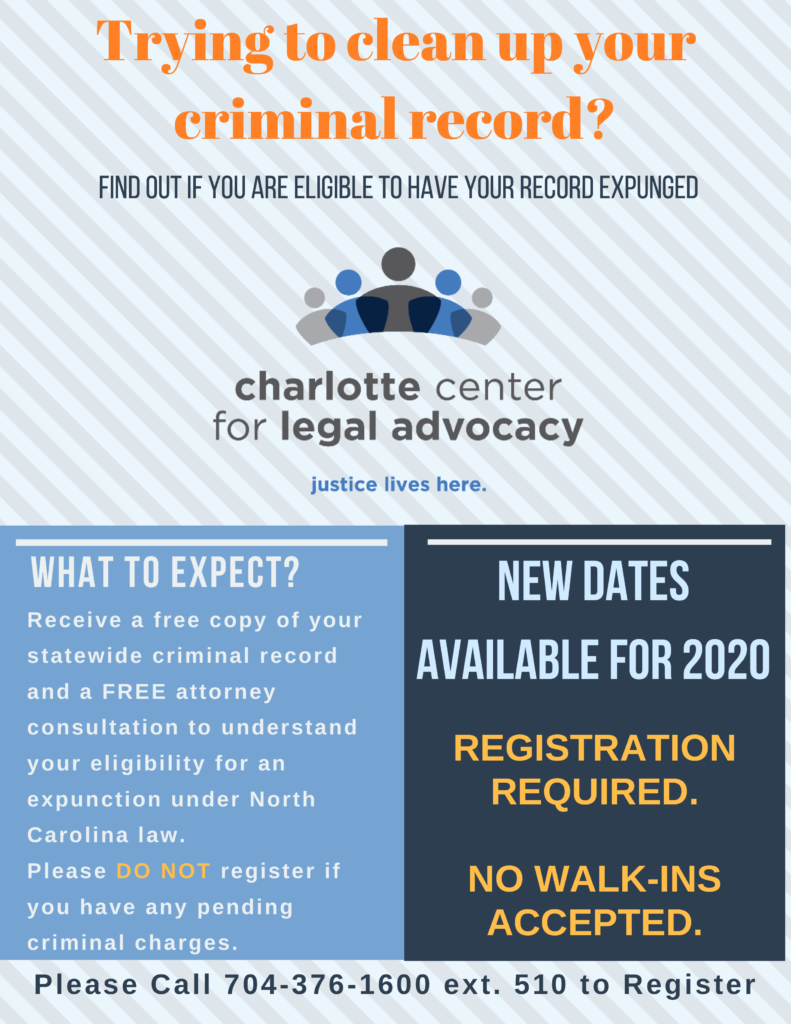Katten Muchin Roseman LLP has allowed one of its attorneys to join the Charlotte Center for Legal Advocacy’s staff this summer to support efforts to provide stability for families in the Charlotte metro region.
Max Swindle joined Charlotte Center for Legal Advocacy May 26, as part of a three-month attorney loan program. Swindle, a real estate attorney specializing in commercial real estate finance, is working with the Advocacy Center’s Consumer Protection Program to help people clean up their criminal records and get drivers licenses restored.
For the more than 2 million North Carolinians with a criminal record, finding jobs, housing and opportunity is an uphill battle. And one in seven N.C. adults has a suspended drivers license, leaving them unable to effectively get to work, school or run everyday errands without a car.
These issues disproportionately impact people based on income and race, which is why the Advocacy Center’s Community Redevelopment Project seeks to eliminate these barriers to opportunity and promote equity in our community.
“I am so excited to have Max join us to do this important work,” said attorney Lashieka Hardin, who manages the Community Redevelopment Project. “I look forward to seeing all the great things we do together as team over the next few months.”
Adding a full-time attorney to focus on these two practice areas is an innovative approach that enables the Advocacy Center to serve more people in need, provide stability and promote economic opportunity.
Charlotte
Center for Legal Advocacy’s Diana Godoy interviewed Swindle during his first
week on the job. Learn a bit more about him in his own words:
About Max Swindle …
“I grew up in North Carolina, went to UNC-Chapel Hill for undergrad and then stayed there for law school. I graduated law school in 2017, and I moved out to Denver, Colorado to work. I was there until December 2018. And then my wife , who I met in law school, and I moved back to North Carolina. She’s originally from Charlotte. I’m from Winston-Salem. So, we just decided to move home.”
What he does at Katten Muchin Rosenman LLP …
“Since
graduating law school, I have been working as an attorney for Katten Muchin
Rosenman and their real estate finance practice group. I represent lenders,
different commercial banks and investment groups and originating new loans for
the commercial mortgage backed securities market.”
Why he came to Charlotte Center for Legal Advocacy …
“With the COVID-19 outbreak, my practice area has been very slow the last few months, really ever since March. Our office managing partner and our deputy general counsel had been in contact with Charlotte Center for Legal Advocacy to see if they could use some help over the next few months with the expunction and driver’s license restoration programs.
They asked me if [joining the Advocacy Center staff] was something I was interested in. And I said, ‘Yeah, that’ll be great.’ I just hope I can pitch in and pick up on these new areas of practice as quickly as I can to be of use.”
What he will be doing …
“For this first week, I’ve been working on a few cases in-house with Lashieka Hardin to kind of get my feet on the ground, kind of understanding how this all works.
And then I believe starting next week, I’m going to start helping with a new driver’s license restoration project. We look at clients that have already been in contact with Charlotte Center for Legal Advocacy, and they have either some misdemeanor or felony charges on their record that could be eligible to be removed if they meet certain criteria. We review those, figure out what we can do, and we file petitions with the different [N.C.] counties where those charges show up.
We hope to get these charges off people’s records because having different charges listed can hinder people getting housing, getting jobs, getting loans, things like that. And I think that’ll continue throughout the summer. I think some of it will be helping coordinate clinics and with outside pro bono attorneys, kind of helping them handle different client interactions.”
What he’s looking forward to …
“Just getting to interact with a great group of attorneys who are very, very good at what they do. I’ve been a part of the few video meetings this first week with the Consumer Protection group. Everyone’s super nice, super passionate about what they’re doing. The work is great: helping people with complex problems that that can really affect your everyday life.
It’s about just getting to work with such great people and give back to the community. I don’t have as much time as I would like to do this work in my normal firm job, so this has been a great opportunity.”
What he hopes to get out of this experience …
“I’m going to try and just absorb as much information as I can so that hopefully when these few months are over, I’ll be able to maybe come back to Charlotte Center for Legal Advocacy as a pro bono attorney to help out with things like expunctions or maybe this driver’s license restoration project later on. I would like to stay involved. I’m just hoping to learn as much as I can so that I can continue to be necessary.”
Thank you to Katten for partnering with Charlotte Center for Legal Advocacy in our mission to pursue justice for those in need. We are glad to have Max on our team!


